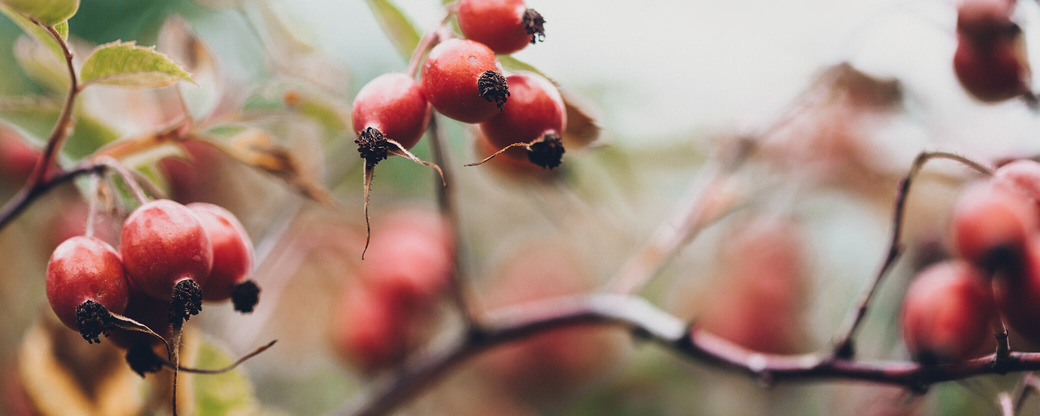Rose hips are the red fruits of various rose species. They are harvested when fully ripe, the seeds are removed and the flesh is gently dried. This way, the important ingredients such as beta-carotene, vitamin E. B and C, potassium, calcium and magnesium as well as the galactolipids and triterpenes can be preserved. Rosehip power consists of finely ground rosehips and is a high-quality, natural product.
Due to their ingredients, rose hips are considered a traditional natural remedy to which various health-promoting properties are attributed. Vitamins A and C act as antioxidants in the body and help against free radicals, which are aggressive oxygen compounds that are produced, for example, during inflammatory processes in the body. Vitamin C is also known not only to strengthen the immune system, but also contributes to collagen formation and thus supports cartilage and bone function. The active ingredients also include the so-called triterpenes, which are said to have an
inflammation-modulating potential.
The positive effects of this richly composed fruit have been used for some time, especially in Scandinavian countries, to help with joint problems. Science has also looked at the possible areas of application of the ingredients and has demonstrated a membrane-stabilising and anti-inflammatory potential of the galactolipids and triterpenes (1,2). Studies on patients with joint problems have also shown an improvement in symptoms after the administration of rose hip powder (3, 4). The ingredients support each other in their effect (5), so rosehip offers a natural cocktail of important components.
The powder is also popular with dogs and cats as a rich supplement to the daily ration. Rosehip powder is often added to the feed or high-quality supplementary feeds with this ingredient are used to support certain areas of health.
(1) Winther et al. (1999): The anti-inflammatory properties of rose-hip. Inflammopharmacology. 7(1):63-8.
(2) Saaby et al. (2011): Isolation of immunomodulatory triterpene acids from a standardized rose hip powder (Rosa canina L.). Phytother Res. 25(2):195-201.
(3) Winther et al. (2005): A powder made from seeds and shells of a rose-hip subspecies (Rosa canina) reduces symptoms of knee and hip osteoarthritis: a randomized, double-blind, placebo-controlled clinical trial. Scand J Rheumatol. 34(4):302-8.
(4) Gruenwald et al. (2019): Rosa canina - Rose hip pharmacological ingredients and molecular mechanics counteracting osteoarthritis - A systematic review. Phytomedicine. 60:152958.
(5) Schwager et al. (2011): Rose hip and its constituent galactolipids confer cartilage protection by modulating cytokine, and chemokine expression. BMC Complement Altern Med. 11:105.
